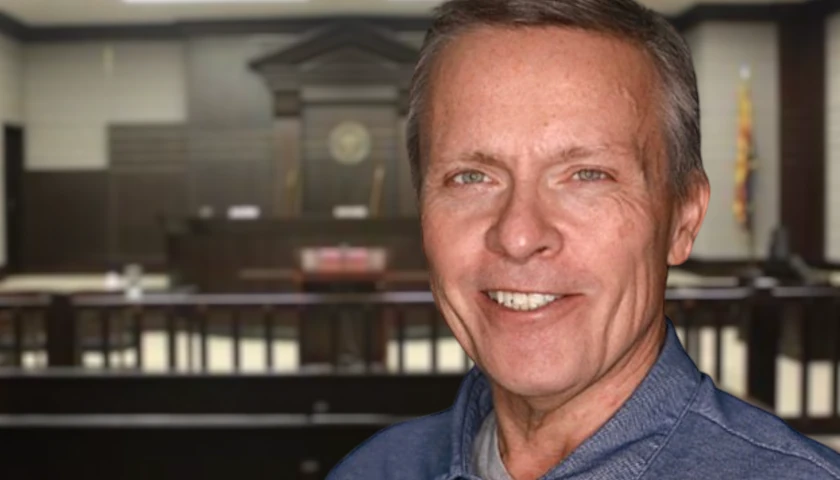A three-judge panel on the Arizona Court of Appeals heard oral arguments last Tuesday in the Goldwater Institute’s (GI) legal challenge to a $1.2 billion sales tax the City of Scottsdale referred to the ballot this fall. GI said the City’s description of Proposition 490 made the tax for parks out to be a tax decrease, when it really was a new tax. GI was appealing a dismissal of its lawsuit by Maricopa County Superior Court Judge Michael Gordon, who was appointed to the bench by Democratic Governor Janet Napolitano.
In its executive summary about the lawsuit, GI stated, “The City of Scottsdale is attempting to trick Scottsdale residents into approving a tax increase by calling it a tax reduction.” GI cited Arizona law, Molera v. Hobbs, which prohibits bait and switch tactics with ballot measures.
The City’s description of Prop. 490 for voters states in part, “A ‘YES’ vote shall have the effect of authorizing the City to replace and reduce the current 0.20% transaction privilege and use tax rate…” and “A ‘NO’ vote shall have the effect of denying the City the authority to replace and reduce the current 0.20% transaction privilege and use tax rate…”
Scottsdale officials contend Prop. 490 merely extends a 0.20 percent sales tax that was passed by voters in 1995 to fund parks and purchase land for the McDowell Sonoran Preserve. They also state that the new tax is lower than the previous one, stating that is only .15 percent.
However, the 1995 tax is scheduled to sunset 30 years later on June 30, 2025, ostensibly since the land was purchased and the tax is no longer needed. Parks also receive revenue from the City’s general fund. After the old tax expires, it will decrease the City’s tax rate from 1.75 percent to 1.55 percent.
Prop. 490’s proposed tax would go into effect after the expiration, a day later on July 1, 2025, and increase the City’s tax rate from 1.55 percent back up to almost as much under the old tax, 1.70 percent.
Attorney Scott Day Freeman argued on behalf of GI. He began, “The City is trying to convince voters that they’re reducing their taxes, when, in fact, if they approve the ballot measure, they will be increasing them. That is a bait and switch. … Nothing has been replaced, nothing has been reduced.”
He also accused the City of violating A.R.S. 9-500.14, which prohibits the use of city or town resources to influence an election.
Freeman (pictured above) offered a resolution. “All the city really needed to say was, ‘Shall the city be authorized to impose a 0.1 percent sales tax rate beginning on July 1, or whatever, 2025, expiring 30 years later for the following dedicated purposes?’”
Judge Anni Hill Foster expressed concern that the judiciary shouldn’t be telling government officials what to do. Freeman responded, “This is the court’s job to keep things that are misleading off the ballot.”
Attorney Craig Morgan of Sherman & Howard, who represents Democrats including Secretary of State Adrian Fontes where he asked for sanctions against Abe Hamadeh and his attorney in Hamadeh’s election lawsuit, presented the argument for the City. He said it didn’t matter whether A.R.S. 19-101 or A.R.S. 19-125 applied. The former addresses referendums referred to the ballot by government legislative bodies, whereas the latter covers ballot measures generally. Both of them state that the description of the measures shall contain the “principal provisions of the measure.”
Judge Michael S. Catlett sounded skeptical questioning Morgan. “We’re setting up a scenario where increase or decrease is in the eyes of the beholder, and whoever’s drafting language, and depends on whether they want the thing to pass or not.”
He asked Morgan about a similar case, Tobin v. Rea. “How do we not have the same case here?” he asked. There, the Arizona Supreme Court ruled that the Arizona Legislature’s Legislative Council accurately drafted its description of restrictions on adjusting the sales tax base by describing it as a new tax. “Though ‘fairly debatable,’ as the superior court remarked, the initiative’s proposed tax may fairly be described as a ‘new’ or additional ‘tax increase,” the court said. “The Council’s use of those phrases is neither inaccurate nor partial.” The court reasoned that the new tax was slightly different than the previous tax.
Morgan responded and said “the funds are segregated.” Freeman offered a rebuttal. “The only thing they’re spending money on is buying the land,” he said. “That’s very different. And there is no overlap, not only temporarily or in terms of subject matter with a new tax.”
Freeman concluded, “We brought this case to try to bring integrity to the election process, to make sure municipalities play straight with the voters, not try to engage in a sales pitch and convince them that they’re getting some sort of break or they’re not paying any new taxes.”
City council members voted 5-2 in April to put Prop. 490 on the ballot. Council members Barry Graham and Bob Littlefield dissented. Graham told The Arizona Sun Times a decision may be issued by the court as soon as Monday or Tuesday.
– – –
Rachel Alexander is a reporter at The Arizona Sun Times and The Star News Network. Follow Rachel on X/Twitter. Email tips to [email protected].
Photo “Attorney Scott Day Freeman” by Scott Day Freeman.





